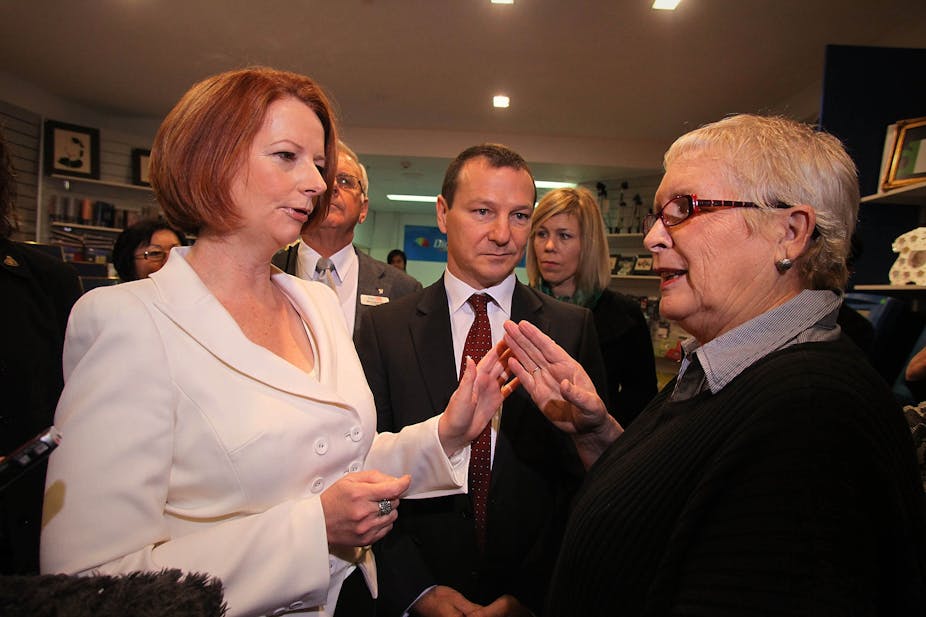Before the details of the carbon tax were released this week, the government was fighting with one hand tied behind its back. Sometimes it looked like it had both hands and feet manacled as Prime Minister Gillard was pilloried by her opponents for back-flipping on her promise to never introduce such a tax. The tranche of opinion polls also suggested that Labor was “dead meat” in electoral terms.
The underlying message of the Prime Minister during these testing times, however, was far from negative. She urged everyone to wait until the details of the tax were released before passing judgement on her government.
One week on, we can at least pass some judgement on how the key players performed in the wake of the carbon tax details being released.
Julia Gillard
If Ms Gillard was a student she’d get an A+ for presentation and self control. In her press conference on Sunday, she sought to position the tax as a form of national investment. She talked about pursuing a “clean energy future” and that the “avalanche of science” presented a compelling case for the tax.
The Prime Minister appeared composed and calm in her many interviews this week. Even when accosted by an irate shopper in Brisbane, Ms Gillard did not lose her cool.
For all this, however, there issues for her to worry about. A major concern would be a sense that voters are still not listening to the prime minister or her government.
A Galaxy poll this week showed that over two thirds of people believed they would be worse off under a carbon tax. This was despite the government spruiking the assistance measures to shield the most vulnerable.
Clearly the government hopes that the imminent advertising campaign will help sway more people to their cause. Julia Gillard’s spot as prime minister is still safe at the moment.
Tony Abbott
Mr Abbott would also get an A+, but his forte is in presenting a simple message: no carbon tax. Ever since the spectre of a carbon tax was raised earlier this year, Mr Abbott has opposed it.
This is a bit of a risky strategy. Mr Abbott’s positioning is reminiscent of Kim Beazley’s approach to the GST debate. As ALP leader in 2001, Mr Beazley promised to “roll back” the GST. The problem is that it is difficult to repeal such a large and complex tax reform once it’s implemented.
Indeed, even if Mr Abbott was to win the next election his government would presumably have to negotiate with the Greens in the Senate to dismantle the policy. At the moment, this would appear to be an almost impossible outcome.
Despite this, Mr Abbott has seemingly staked his political future on opposing the carbon tax. Recent comments by Malcolm Turnbull, which hint he is less than enamoured with his party’s policy, highlight some divisions that exist within the Liberals. But by continuing to win the opinion poll race Mr Abbott’s position is safe for now.
The Greens
The carbon tax is a big win for the Australian Greens. Clearly Bob Brown and his parliamentary colleagues took great pleasure in discussing the details of the tax this week with the media.
While the party’s presence in the political debate has grown, it’s interesting to note that its primary vote has remained steady.
According to Newspoll, the party was more popular earlier in the year than it is now. Its primary vote has fallen from 15 per cent at the start of March to 11 per cent now.
This week has just given the Greens a taste of the media, and political, opportunities that await them while holding the balance of power in the Senate.
Let the battle for votes commence
Releasing the details of the carbon tax has not been an immediate circuit breaker, but it has levelled out the playing field.
While the government has been down in the opinion polls, there are two years until the next election is due. Time is on the government’s side.
But now the Gillard Government has both hands free to fight its case. The question remains, however, whether people are still watching the fight or whether they have already made up their minds about who the winner is.

